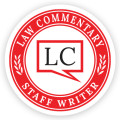On Thursday, federal judges in Maryland, New Hampshire, and Washington, D.C. blocked an Education Department policy threatening to withhold federal funding from public schools and universities that maintain diversity, equity, and inclusion (DEI) programs.
The rulings came in lawsuits filed by teachers’ unions and civil rights organizations challenging a February 14 directive from the U.S. Department of Education. The directive warned schools that promoting DEI initiatives could be considered discriminatory under federal law and threatened financial penalties for noncompliance. Judges ruled that the policy violated constitutional protections and federal law, dealing a sharp rebuke to an initiative that critics described as an unlawful attempt to censor educational institutions.
The administration is expected to appeal the decisions, although the Education Department did not immediately issue a public response.
The contested policy was outlined in a "Dear Colleague" letter that framed DEI efforts in stark terms. It accused schools of adopting "pervasive and repugnant race-based preferences" and "toxically indoctrinating" students by teaching about systemic racism. It warned institutions that federal enforcement actions could follow if their programs were deemed to violate civil rights law.
However, U.S. District Judge Landya McCafferty in New Hampshire found the guidance fundamentally flawed. Siding with the National Education Association and other plaintiffs, McCafferty ruled that the policy was unconstitutionally vague and infringed on educators' free speech rights under the First Amendment. An appointee of former President Barack Obama, McCafferty noted the letter failed to clearly define what constituted a prohibited “DEI program,” leaving schools uncertain about which initiatives could put their funding at risk.
"DEI as a concept is broad: one can imagine a wide range of viewpoints on what the values of diversity, equity, and inclusion mean when describing a program or practice," McCafferty wrote. She also found that the policy impermissibly targeted professors’ speech based on viewpoint, particularly if they taught about structural racism in America.
In Baltimore, U.S. District Judge Stephanie Gallagher—appointed by Trump—likewise blocked enforcement of the policy after a challenge from the American Federation of Teachers, the American Sociological Association, and other groups. Gallagher ruled that the Education Department had bypassed required rulemaking procedures and lacked authority under the Department of Education Organization Act of 1979 to impose such sweeping conditions. That law explicitly bars the agency from directing or supervising school curricula or instructional materials.
Meanwhile, in Washington, D.C., U.S. District Judge Dabney Friedrich, another Trump appointee, issued a third ruling against the administration. Friedrich found that the February directive was too vague to be enforceable and blocked a related certification requirement that would have forced state educational agencies to affirm compliance or risk losing funding as soon as this week.
The three rulings collectively halt the Education Department’s effort to coerce K-12 schools and universities to curtail DEI programs. Legal advocates for the plaintiffs praised the decisions, framing them as a victory for constitutional rights and academic freedom.
Skye Perryman, president and CEO of Democracy Forward, a legal group that represented the Maryland plaintiffs, said in a statement, "This ruling affirms what we have always known: this administration’s attempts to censor schools, teachers, educators, colleges, and universities is unlawful."
The DEI funding threat is part of a broader Trump administration campaign to curb race-conscious education initiatives, which it claims foster division and violate civil rights laws intended to guarantee equal treatment. But opponents argue that diversity programs are essential to ensuring inclusive learning environments and that efforts to suppress them amount to political interference in educational decision-making.
Thursday’s decisions represent an early and substantial obstacle for the administration's strategy. With appeals likely, the issue could climb through the federal courts, potentially reaching the Supreme Court and reigniting national debate over the scope of government authority in regulating educational content and diversity efforts.






